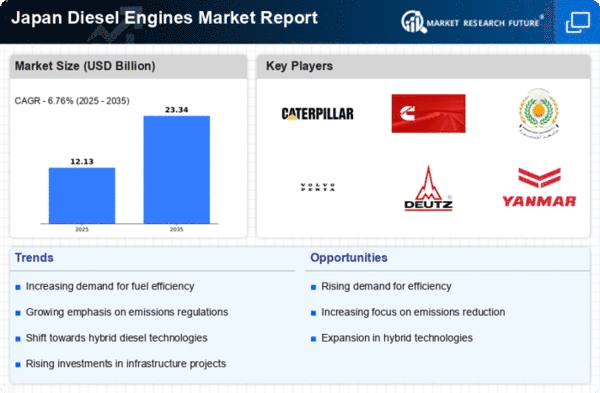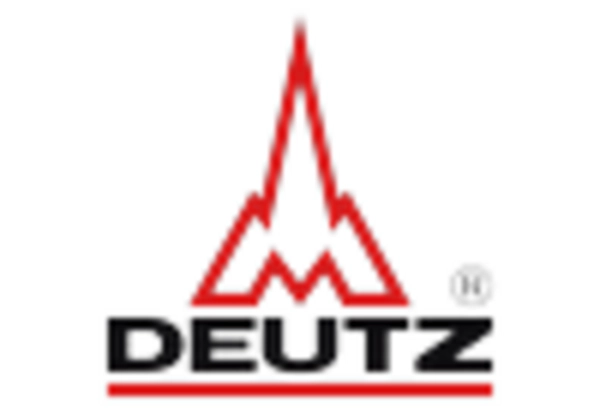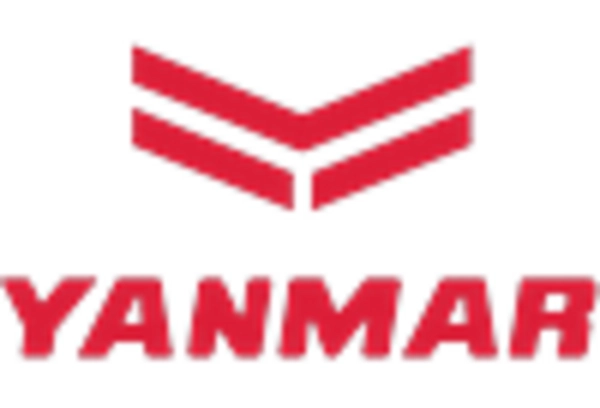Rising Demand for Commercial Vehicles
The rising demand for commercial vehicles in Japan is a key driver for the diesel engines market. As the economy continues to recover, businesses are increasingly investing in logistics and transportation capabilities. The commercial vehicle segment, particularly trucks and buses, is witnessing a surge in demand, with a reported growth rate of 8% in the last year. This trend is expected to continue, as companies seek efficient and reliable transportation solutions. The diesel engines market is thus positioned to benefit from this growing demand, as diesel engines are favored for their durability and fuel efficiency.
Infrastructure Development Initiatives
Infrastructure development initiatives in Japan play a crucial role in shaping the diesel engines market. The government has allocated substantial budgets for the enhancement of transportation networks, including roads, railways, and ports. This investment is expected to boost the demand for heavy-duty diesel engines, particularly in construction and logistics sectors. Recent reports indicate that infrastructure spending is projected to reach ¥10 trillion by 2026, which could lead to a 20% increase in diesel engine sales. Consequently, the diesel engines market is likely to experience growth driven by these large-scale projects.
Export Opportunities in Emerging Markets
Export opportunities in emerging markets present a promising avenue for the diesel engines market in Japan. As developing countries expand their infrastructure and industrial capabilities, the demand for reliable diesel engines is on the rise. Japanese manufacturers are strategically positioning themselves to capitalize on this trend, with exports of diesel engines increasing by 12% in the past year. This growth is indicative of the potential for the diesel engines market to expand its footprint internationally, thereby enhancing revenue streams and fostering innovation in product development.
Regulatory Compliance and Emission Standards
The diesel engines market in Japan is significantly influenced by stringent regulatory compliance and emission standards. The Japanese government has implemented rigorous regulations aimed at reducing greenhouse gas emissions and improving air quality. As a result, manufacturers are compelled to innovate and develop cleaner diesel technologies. The introduction of the 2020 emission standards has led to a notable shift in the market, with a reported 15% increase in demand for low-emission diesel engines. This regulatory landscape not only drives technological advancements but also encourages investment in research and development within the diesel engines market.
Technological Innovations in Engine Efficiency
Technological innovations aimed at enhancing engine efficiency are pivotal for the diesel engines market in Japan. Manufacturers are focusing on developing advanced fuel injection systems, turbocharging technologies, and hybrid solutions to improve performance and reduce fuel consumption. Recent advancements have led to diesel engines achieving up to 25% better fuel efficiency compared to previous models. This focus on efficiency not only meets consumer demands but also aligns with environmental goals, making the diesel engines market more competitive. As technology continues to evolve, the market is likely to see further improvements in engine performance.
















